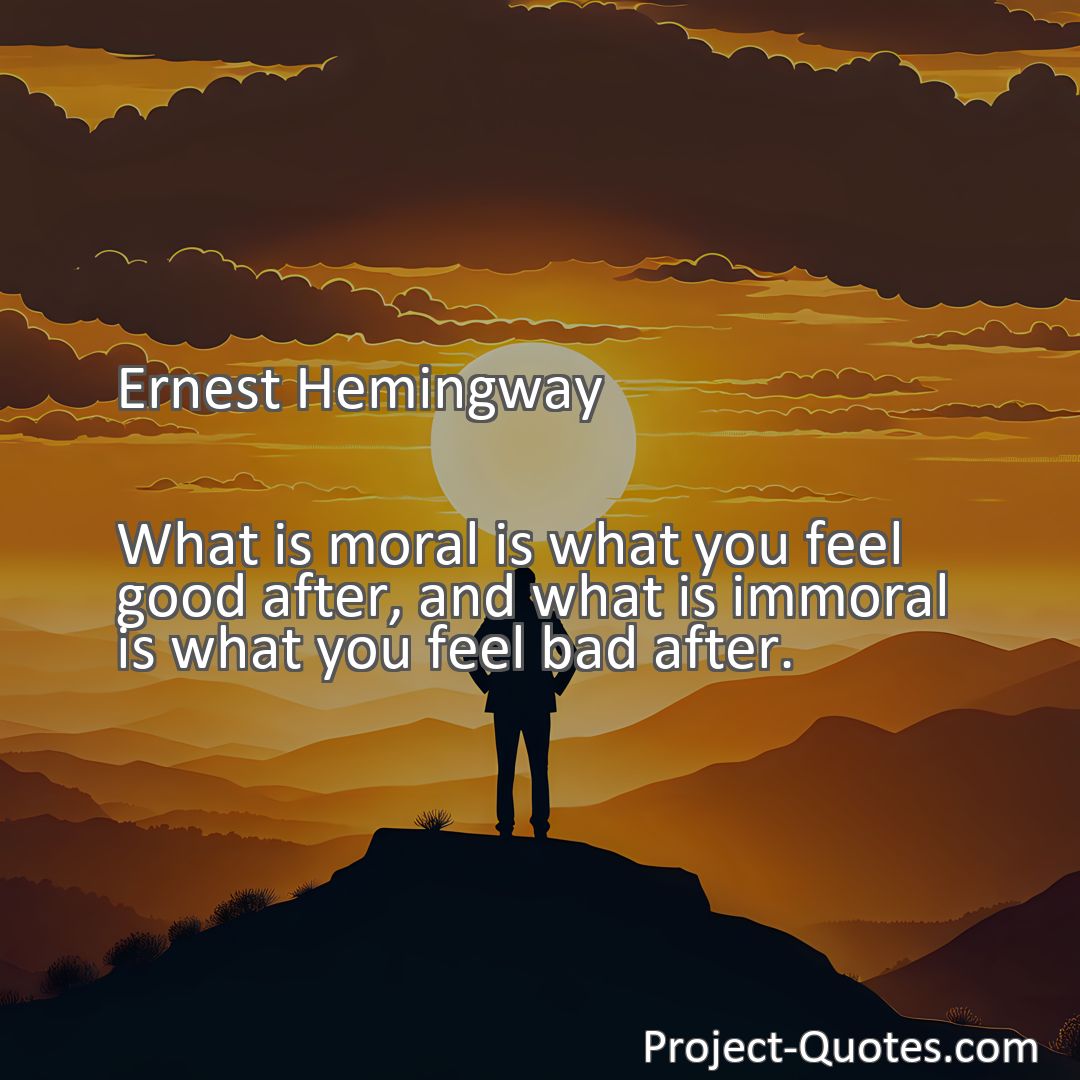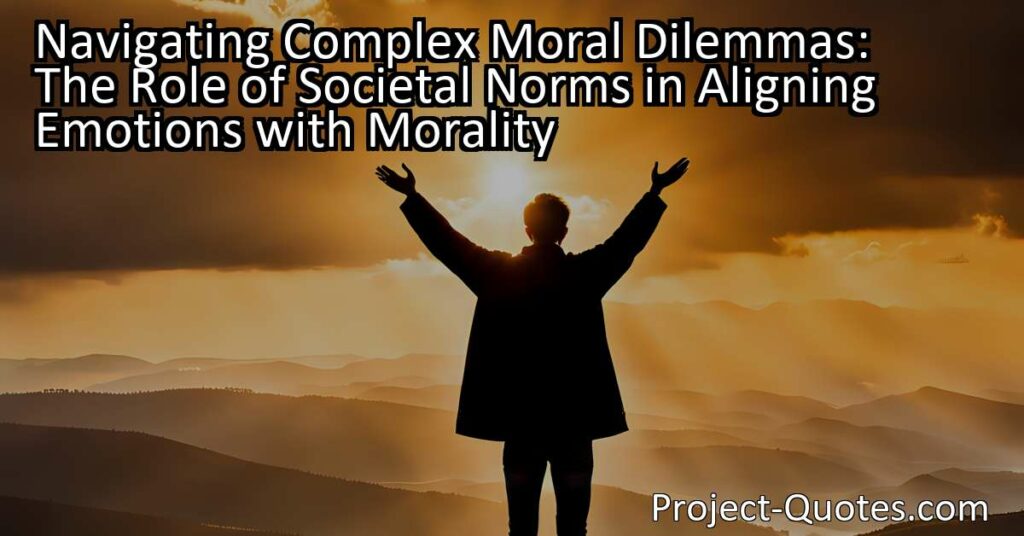What is moral is what you feel good after, and what is immoral is what you feel bad after.
Ernest Hemingway
The role of societal norms is explored in navigating complex moral dilemmas. While our personal emotions provide valuable feedback, societal norms help provide a framework for moral behavior and ensure consistency and order. By combining emotional introspection with critical analysis and societal norms, we can strive to align our actions with our values and make ethical decisions.
Table of Contents
Meaning of Quote – What is moral is what you feel good after, and what is immoral is what you feel bad after.
Have you ever wondered why we sometimes feel a heavy weight on our conscience after certain actions, while others leave us with a sense of contentment? Renowned author Ernest Hemingway once said, “What is moral is what you feel good after, and what is immoral is what you feel bad after.” This statement carries profound insights into the concept of morality, highlighting the connection between our emotions and our ethical compass.
Morality, simply put, refers to our understanding of right and wrong. It guides our decision-making process and shapes our behavior towards others. However, moral judgments are not always clear-cut or universally agreed upon. What one person deems morally acceptable may not align with another’s perspective. This is where Hemingway’s quote becomes relevant. Instead of relying solely on external standards or societal norms, he suggests that our own emotions play a pivotal role in defining morality.
When we do something that aligns with our personal values and beliefs, Hemingway argues that we will experience a sense of satisfaction, joy, or contentment afterward. This emotional response serves as an indicator of our actions being morally sound, according to our own conscience. Take, for example, the act of helping someone in need. If we genuinely care about others and lend a helping hand, we are likely to feel a warm, gratifying sensation afterward. This positive emotional feedback reinforces our belief that we have acted morally.
On the other hand, when we engage in actions that contradict our values or harm others, we often feel remorse, guilt, or sadness afterward. These negative emotions indicate a moral misalignment, a realization that we have deviated from what we perceive as right. For instance, if we cheat on a test, we may experience an immediate sense of guilt. Our conscience pricks us, reminding us that we have acted immorally by taking a dishonest shortcut. The unease we feel demonstrates Hemingway’s assertion that immorality leads to negative emotional consequences.
While it may seem appealing to propose a simplistic equation where morality is solely tied to our emotions, morality is a complex and multifaceted concept. Our emotions, shaped by various factors such as personal experiences, cultural influences, and learned values, can sometimes cloud our moral judgment. What feels good in the immediate moment may not necessarily be morally right in the long run. This is why Hemingway’s quote should be examined cautiously and critically.
Though our emotions provide clues about our moral decision-making, they are not infallible guides. It is necessary to consider the intentions behind our actions, the consequences they may have on others, and the broader ethical implications. Sometimes, what initially feels good may later reveal itself as the product of self-interest or selfish motivations. For example, stealing a coveted item might bring temporary joy, but once the guilt settles in and the harm caused to another person is understood, our initial positive emotions may be overshadowed by regret and sadness.
Moreover, morality extends beyond individual feelings to encompass a collective understanding of right and wrong that society deems acceptable. Societies establish legal systems and codes of conduct to provide a framework for moral behavior, allowing for a degree of consistency and order. These societal norms help us navigate complex moral dilemmas where personal emotions alone might not suffice. For instance, laws against theft exist to protect individuals’ property rights and ensure fair and just interactions among community members.
In this context, Hemingway’s quote emphasizes the importance of introspection and self-awareness when examining our moral compass. By considering how our actions make us feel internally, we gain insights into our personal ethical framework. It encourages us to pause and reflect on the impact of our choices and the potential emotional consequences they may bring. This introspective approach can help us align our actions with our values and build a stronger moral character.
In conclusion, Ernest Hemingway’s quotation, “What is moral is what you feel good after, and what is immoral is what you feel bad after,” raises thought-provoking insights into the relationship between morality and emotions. While our feelings can provide valuable feedback about the moral quality of our actions, it is crucial to combine emotional intuition with critical analysis and societal norms to form a well-rounded moral compass. By engaging in thoughtful self-reflection, we can strive for a more harmonious alignment between our emotions, values, and ethical behavior.
I hope this quote inspired image brings you hope and peace. Share it with someone who needs it today!


